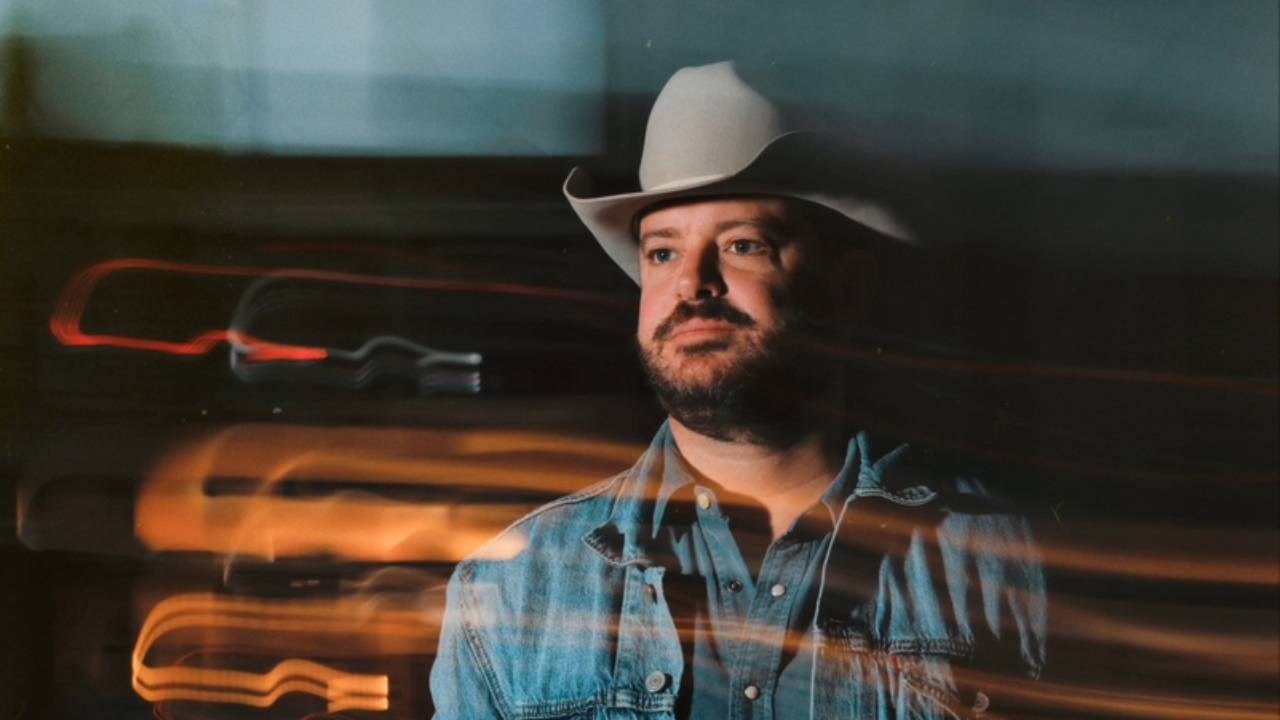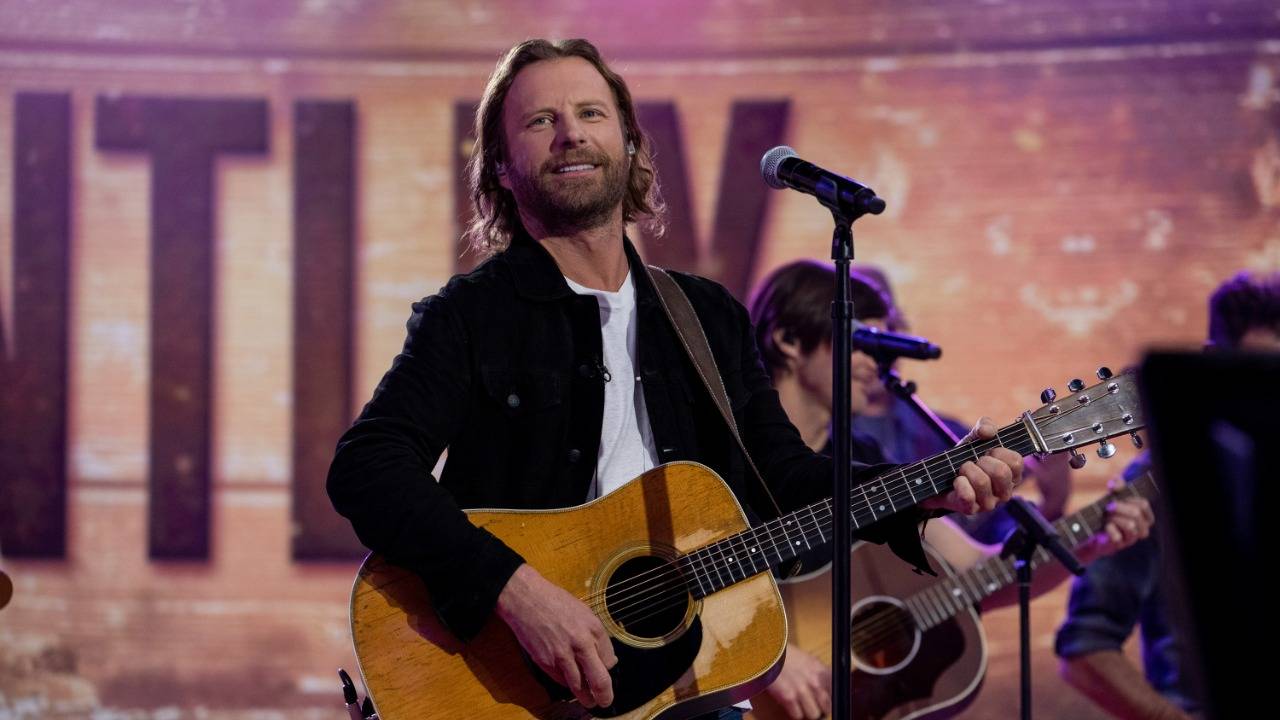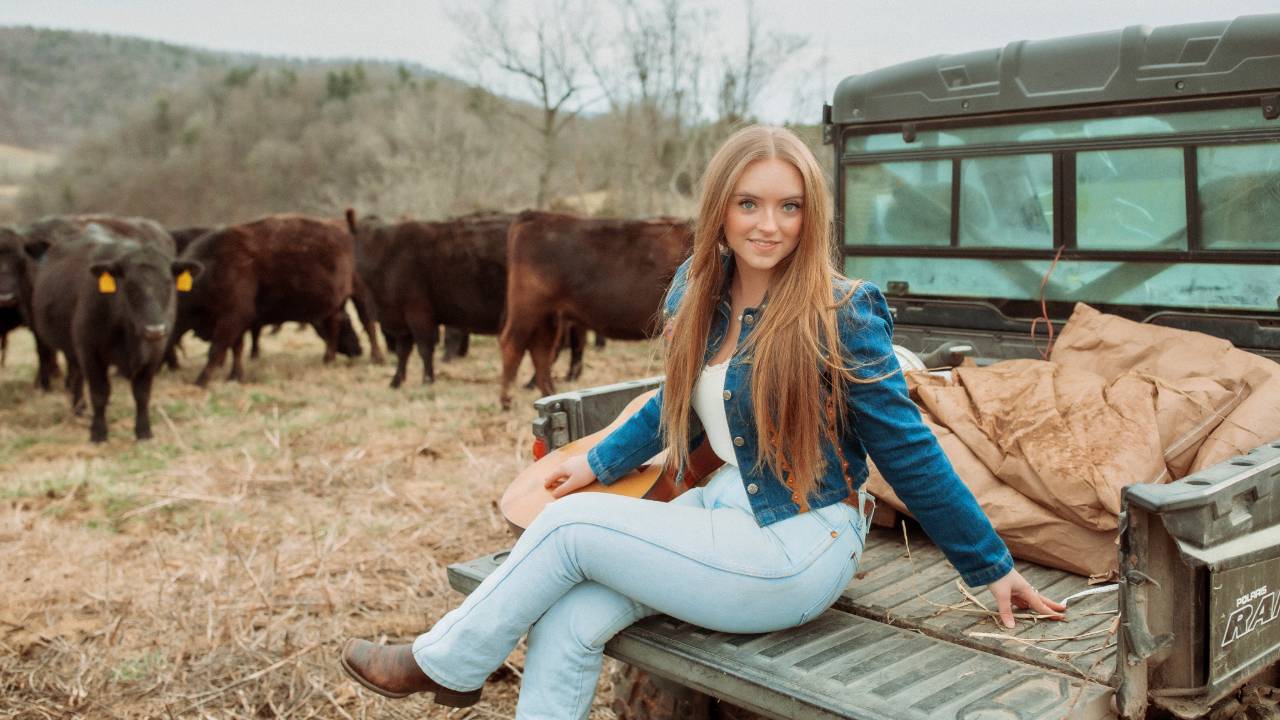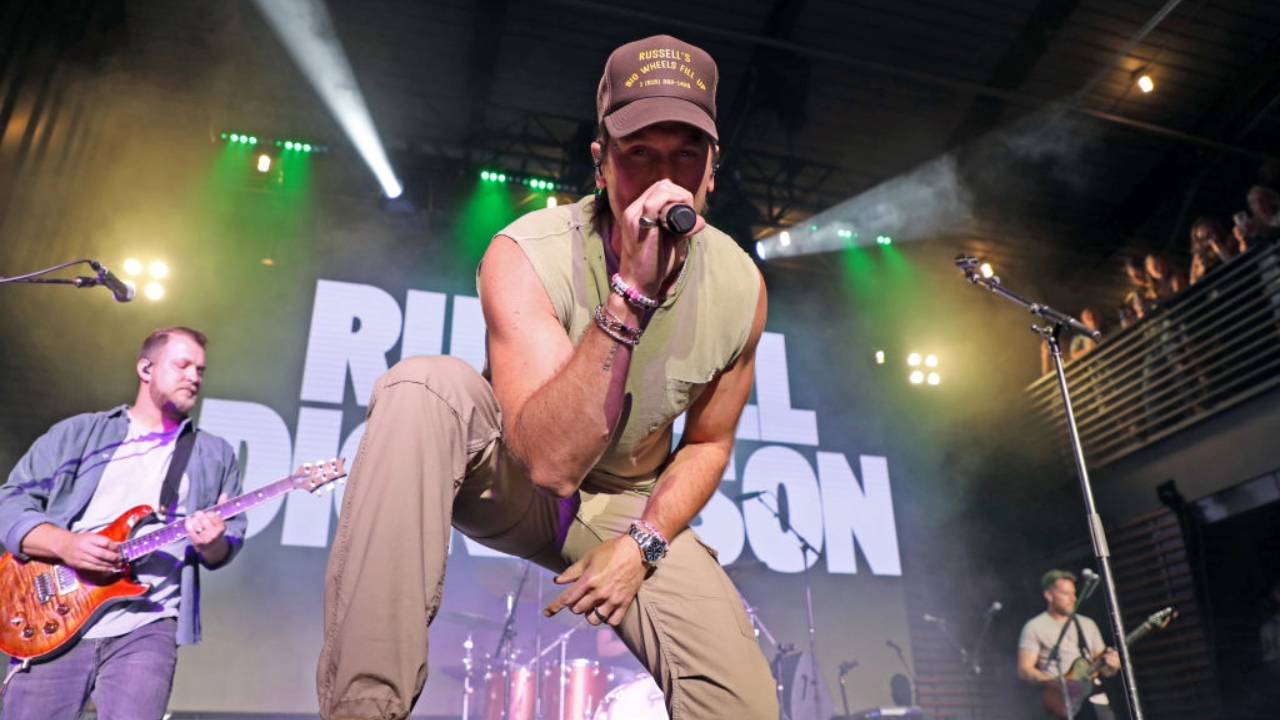Steve Earle Launches Anti-War Album
As New York was making last-minute preparations to host the Republican National Convention that would nominate President George W. Bush for a second term, Steve Earle was in the city doing his best to derail that prospect. The instruments of Earle's resistance are a new album of protest songs and a new weekly talk show on left-leaning Air America Radio. Both projects bear the hopeful title The Revolution Starts Now.
The album bristles with songs that jab at the legacy of the Bush administration, from "Rich Man's War," a lament about the "poor boys" who always suffer in such conflicts, to "Home to Houston," the terrified ruminations of a civilian truck driver in post-war Iraq, to "F the CC," a middle-finger salute to the Federal Communications Commission. There's even a lustful calypso send-up of Condolezza Rice -- "Condi, Condi" -- that urges the lissome National Security Advisor to "Skank for me Condi, show me what you got."
Speaking by phone from the New York offices of his label, Artemis Records, Earle tells CMT.com he recorded The Revolution Starts Now on a tight, self-imposed deadline -- and that he's satisfied with the result.
"I think I work pretty well with a deadline, but I don't ever want another one like this," he says. "Basically, I wrote 'Rich Man's War' and 'The Revolution Starts Now,' and I decided I really wanted those songs out before the [presidential] election. That meant I had to write the rest of the songs [to complete the album]. So it literally, by the third day, was me waking up in [my home] in Fairview [Tennessee] with a blank sheet of paper."
Noting the band and co-producer Ray Kennedy were at a studio miles away, Earle says, "I would get there usually by 1 [p. m.] with a finished song, and we'd start recording and have a finished track by 1 o'clock the next morning. … I love the way it turned out. I think that sort of urgency's there. I think you could play any track on the record and you feel that, which is good. I think it's appropriate for this record."
Apart from his musical achievements, Earle has also been building a reputation as a playwright, short story writer, essayist and actor. His play Karla tells the story of Karla Faye Tucker who, despite pleas for clemency from around the world, was executed in Texas while George W. Bush was governor. In 2001, Houghton Mifflin published Earle's first collection of short fiction, Doghouse Roses: Stories. Still, he says, he instinctively turns to songwriting when he has a message he wants to deliver.
"I believe in working outside of my craft," he explains. "I don't think I would have ever written 'Warrior' [which envisions the obsolescence of war] without my involvement in theater over the last few years. But my natural gut reaction when the chips are down is to turn to the craft that I know the best. So I tend to start communicating in musical terms pretty rapidly."
Earle concedes that Condoleeza Rice is more of an enigma to him than a target.
"Her whole existence fascinates me," he says. "She's exactly my age, and she's black and she's well educated. She's a specialist in a country that doesn't even exist anymore. But all well educated white people who end up being Republican fascinate me. The Beach Boys fascinate me. I don't know how you get from transcendental meditation to being a Republican."
The revolution Earle calls for in the album's title cut is essentially a personal one that, ideally, will lead to larger social changes.
"Revolution, to me, is an ongoing thing," he says. "It has never stopped. It's never going to stop. It gets interrupted at times. It's about growth. I'm somebody that if I hadn't learned how to change, I'd be dead right now. I had to really, really change, relatively late in my life. I mean I got clean [from drugs] when I was 40. I'll have 10 years [of being drug-free] in about three weeks -- which blows my mind. It's like a whole other lifetime that I've lived. Change is really important. Keeping fluid. Just not being addicted to being right, not being so convinced that you know how to do everything."
"Warrior" is a spoken-word cut that Earle delivers with a fine theatrical flair. Of its message, he observes, "I've heard it over and over again, 'Wars will never end because it's human nature.' You know what? That's bullshit. Wars that are happening now don't happen for any other reason than money. We don't have to be our worst. We can be our best. … We should not expect so little of ourselves."
Although some critics have pegged Earle as a relative newcomer to political songwriting, he vehemently disagrees.
"Anybody who thinks that didn't listen real closely to Copperhead Road [1988] or 'Good Ol' Boy (Getting' Tough)' on the first record [Guitar Town, 1986]. But I'm definitely communicating it in more overtly political terms in the last couple of records. Look, man, I'm single for the first time in my life really. I need to write some chick songs right now, but I'm finding it really hard to do in the climate that I live in. . . . What's going on around me right now I find kind of scary. ...Jerusalem [the 2002 album that contained the controversial song about the 'American Taliban' John Walker Lindh] is about my discovery of how ignorant we are of Islam -- including me. … This record I wanted out before the election. I wanted to weigh in. What I ended up with was an anti-war record. Now that I look at it, it makes perfect sense to me."
One of the few non-political songs in the new album is "Coming Around," a duet with Emmylou Harris. Earle wrote it for the soundtrack of the upcoming Robert Redford-Jennifer Lopez movie An Unfinished Life.
"It's a real cool story," he notes. "I like to write stuff for films because it gives me a chance to do a track that has a concept of its own outside of everything else I'm doing, whether it becomes a part of my album or whether it goes on a soundtrack record."
Director John Sayles picked another of Earle's compositions for his current film, Silver City, a project that also has an anti-Bush tilt. The song is "Amerika v. 6.0" from Jerusalem.
"I wrote it for [another] film," Earle says, "and it got thrown out after [the] Sept. 11 [terrorist attacks] because the director thought it was too socially critical." Sayles turned up as one of Earle's first guests on his Air America Radio show (which runs on Sundays at 10 p.m. ET.)
The much-married Earle seems to revel in finally being single again. "I'm done now," he says. "I'm retired. I'm thinking about ripping out the toilet in my upstairs bathroom and having it installed in the middle of the living room, just to keep any girl from moving in."
For his 50th birthday, which comes next January, he plans to add yet another skill to his already formidable array of talents.
"I was playing the Byron Bay [Blues] Festival in Australia, and I announced that -- to celebrate my 50th birthday -- I was coming back to Australia, and that I was going to f**king learn to surf. I've always wanted to. I've lost a little weight, so I've got a better chance of staying afloat."
In 1999, Earle made his first foray into bluegrass with The Mountain, an album he recorded with the Del McCoury Band. He credits that effort with making him both a better singer and guitar player. And he says he plans to do more of this kind of music.
"I took the bluegrass band out for three weeks this summer -- me and Tim O'Brien and Darrell Scott," he said. "I need to make a full-length record with that band. … I plan at some point in the future -- and it may be the near future -- to write a record. In fact, we've talked doing it as a band record, where there are some of Tim's songs and some of Darrell's songs."
Earle is keeping his hand in fiction writing as well. "I'm working on a novel," he reports. "I've been working on it off and on for two and a-half years. I got a really good jump on it, and then I ended up making this record, which has sort of slowed it down. My guess is that I'll finish it early next year and get it out in 2006."
Political songs have affected Earle's outlook, he admits, and he believes his will influence others.
"I think my favorite political song -- and I think I'm saying this because there's such a stunning new version of it -- is [Bob Dylan's] 'With God on Our Side.' Have you heard the Buddy Miller version? … I think Buddy's the greatest country singer alive. I really do believe that. … His version of 'God on Our Side' had me sitting there thinking, 'That really is an incredible song -- every word of it.'
"My favorite Woody Guthrie song is probably 'Deportee,' because it's the most human protest song that I've ever heard. It has such a huge amount of empathy in it. It is about an issue, but it's about people. And it's heartbreaking. I believe with all my soul that Woody Guthrie was genuinely touched about what happened to those people when he read about that plane [of Mexican deportees] going down in Los Gatos. I just survived hearing Joan Baez sing that song in Los Gatos, California, a few weeks ago. I did several shows with her. And I also survived Joan Baez singing not one but two of my songs every night, which was pretty heartstopping. She recorded 'Christmas in Washington' on her last record [Dark Chords on a Big Guitar, 2003]. She did that every night and 'Jerusalem' every night."
If ever there was a time for such socially conscious music, Earle asserts, it is now. "I hate to say it," he says, "but there are some really dark times coming up, and some memorable music will come out of it. You haven't seen the end of this kind of music. It always happens. Anybody who tells you that music didn't help end the Vietnam War wasn't there. I've lost count of the number of people that have come up to me over the years and said, 'You know what? Those songs you wrote about the death penalty changed my mind about the death penalty.' Maybe what I do isn't just window dressing. Maybe it does mean something."





